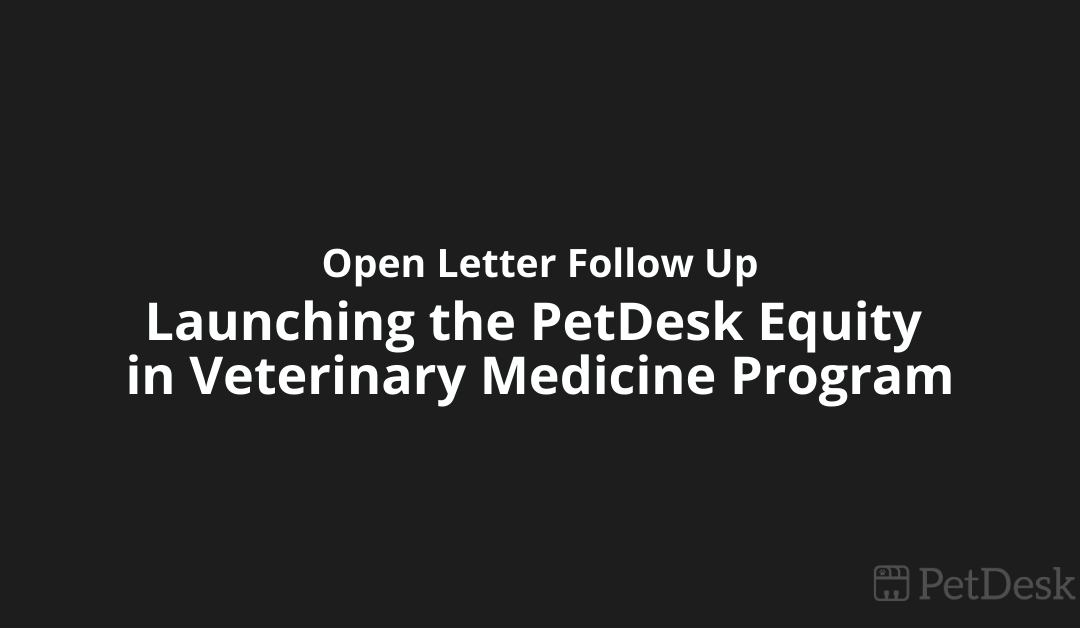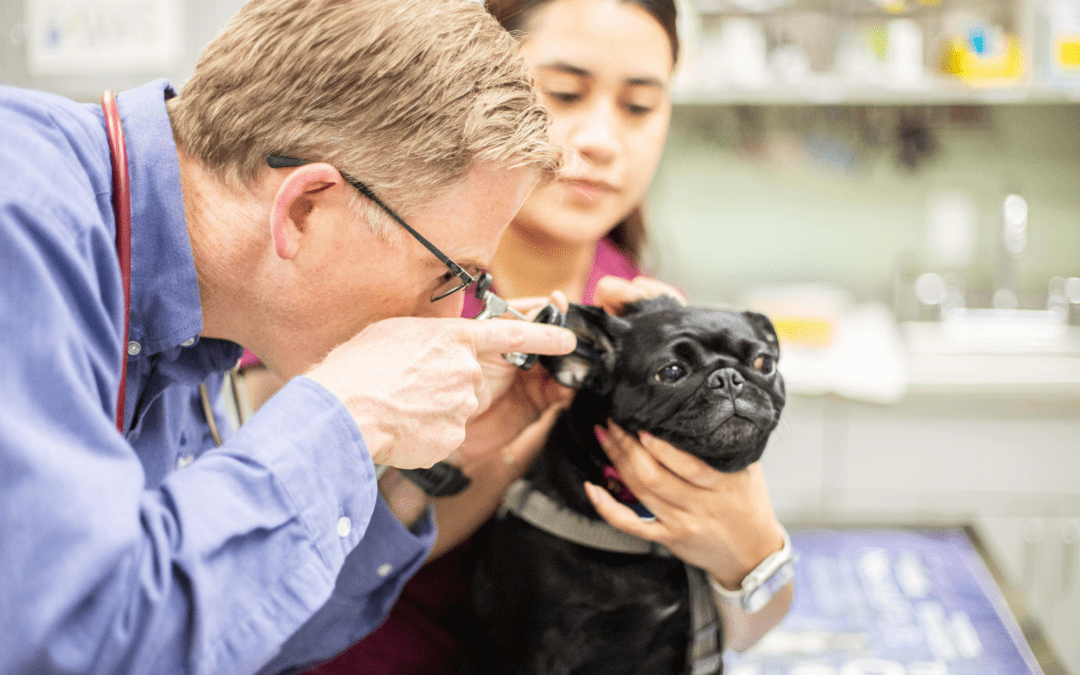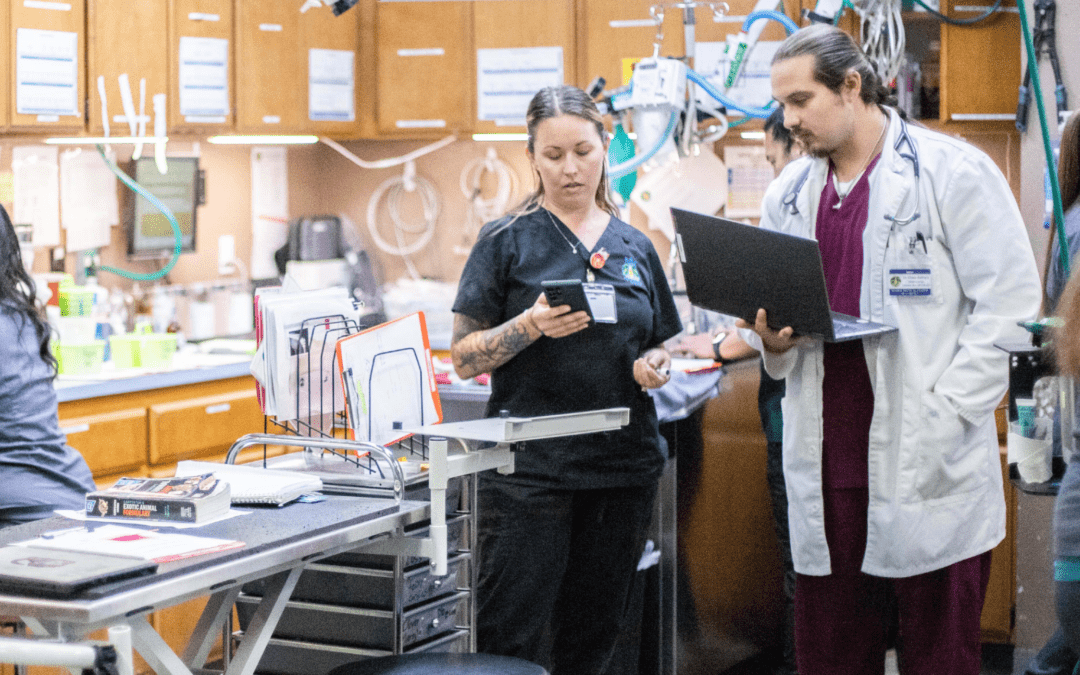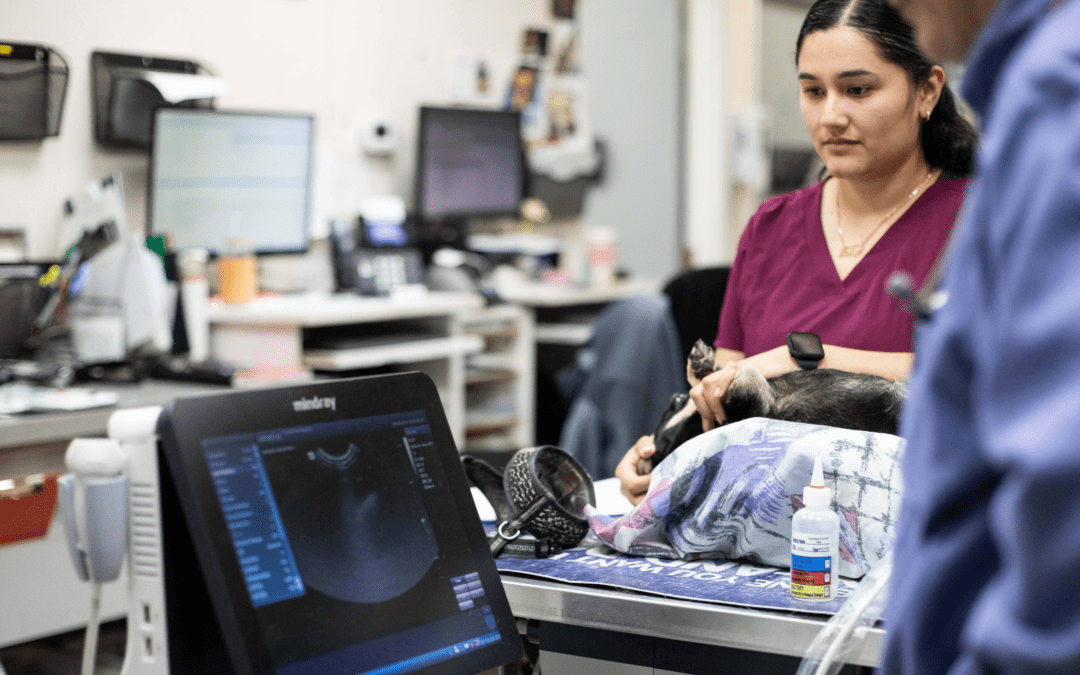At PetDesk, we’ve always been committed to our Diversity, Equity, and Inclusion (DEI) mission; but like many other companies, we have more work to do internally. The events surrounding George Floyd’s death and the resulting awakening in our society catalyzed our thinking further – what is our DEI mission externally. We had three major breakthroughs as we asked ourselves questions around this topic. First was how to give significant monetary support as an earlier stage company. The second breakthrough involved where that money would go. And lastly, how we would structure the resulting program to guarantee long term opportunities for our recipients and, ultimately, our industry.
Giving Money as a High Growth Startup
We are a high growth Software-as-a-Service (SaaS) startup, and as such, we spend the money we raise from investors on more sales, more engineering, and more growth. We are not profitable or cash flow positive by design. Historically, I used this reason to explain why we did not contribute to a charity or a cause if employees asked about it. I planned to get to profitability, and then we would start our corporate social responsibility programs. When we discussed it as a founding team, we decided we needed to change our thinking. If we were able to balance the cost of high growth with the cost of having the largest customer success team in the industry, we could surely figure out how to give back too. So, we decided to devote 10% of our yearly profits (or 1% of our revenue for now) to fund these efforts each year.
Funding Social Change for Pet Health
As a pet health tech company, we always thought that we’d focus our corporate social responsibility efforts on pet health. Now, this is another area where our thinking has changed. Everything we do serves pet health. Our mission and vision for the company are to extend pet lives, not only by connecting pet parents and pet care providers, but also by returning all of the insights and data we create to academics and the industry at large. When thinking about our corporate social responsibility efforts, it became obvious that, instead of giving money to pet health causes, we should focus on improving diversity, equity, and inclusion within the pet care industry. Fortunately, that effort will also serve pet health but in a very different way.
Opportunity from a Company Full of Passionate Allies
The last big open question: how do we do that? The inspiration came from Aaron and my mom. Aaron and his fellow Notre Dame alumni are working to fund a scholarship for a Black Notre Dame student personally. Focusing your impact and knowing that you greatly impacted one person’s life is something that can inspire much more. And in this case, it worked as inspiration to do the same thing at PetDesk. My mom had a similar suggestion for our company, and it reminded me of all the support she gave me in getting here. We started out with very little, but she went back to school, moved us to Chicago, and ultimately paid for all of my higher education. She wanted to clear a long path, knowing I would do the work. When I graduated from college and went to graduate school and needed help making that transition, she gave me money. When I turned 30 and sold all my possessions to start a business, she invested in me again. My mom gave me opportunities that so many don’t get, which inspired this program’s other aspects.
Before we get to our plans for this year, let’s jump into what we’d like to see this program look like in 2030:
- A $2,000 application stipend for every applying underrepresented minority in veterinary medicine (URVM) with need. $2,500,000 a year.
- A fully funded scholarship at every college of veterinary medicine for a URVM with need. $4,000,000 a year.
- A $5,000 postgraduate stipend for every graduating URVM with need. $2,500,000 a year.
- A no strings attached $100,000 business grant for 10 URVMs to start their own business in an underserved area. $1,000,000 a year.
Our goal is threefold and centers around that external DEI mission.
Diversity
We want to make a huge impact on one person’s life by removing the pressure of looming tuition debt after school, and in so doing, create a program that could attract more people of color to increase diversity in the profession.
Equity
We want to support our applicants and graduates so that more possible paths before and after school are open to them, which will lead to more equitable outcomes. The application stipend may allow them to interview at more schools, visit their dream school across the country, or defray the costs and make this life decision a little less stressful. The postgraduate stipend may allow them to relocate for their dream job, spend more time interviewing, take a riskier but more rewarding path, or relieve some of the stress to make a decision.
Inclusion
Inclusion is one of our strongest passions at PetDesk, and helping Black, Indigenous, Latinx, Asian, and all other underrepresented veterinarians start businesses in underserved communities will help solve both sides of veterinary medicine’s inclusion problem – in the profession itself and for pet parents of color.
Our Plans in 2020 and 2021
We don’t have $10M to donate this year and won’t for a while (we’ll need $500M in revenue at 20% profit margins to fund this ourselves). However, we do have a solid plan to start this program at two colleges this year and begin extending the program as we grow our business. We hope this model can inspire others to give alongside us and reach that $10M a year goal much sooner. We’ve already had soft commitments at the universities to match funds. If we can find four other $10M companies (that are on a path to hit $100M in the next ten years) to give alongside us, we’ll get this done by 2030. Or one of the large companies in our space could come in a year or two from now and make this a reality much earlier (a $90M endowment spread across the 30 colleges could make this happen forever). In the meantime, here’s our plan for 2020 and 2021:
- This year we will offer four $20,000 scholarships (across two colleges of veterinary medicine) for URVMs in need, with a preference for candidates with a personal investment in equality, equity, and social justice for the Black community. Two of these will be for first-year students and two for graduating students. Totaling $80,000 for 2020 (we have an extra $20K we’re still looking to put to work).
- In 2021, we will offer five $2,000 application stipends for URVMs applying with need.
- In 2021, we will continue to provide four $20,000 scholarships—two for the continuing scholars and two for new first-year students.
- In 2021, we will also offer two $5,000 postgraduate stipends for our graduating scholars.
- In 2021, we will fund our first $20,000 business grant to a Black veterinarian starting a business in an underserved area. Totalling $120,000 for 2021.
Where You Can Help
All of this is a work in progress. We’re still learning, and there are many leaders in our industry that we haven’t been able to consult with yet. But we aim to get this done soon so we can award scholarships to our first four PetDesk Scholars. Here’s a list of ways you could help us in this mission:
- We’d love more feedback on this structure, whether you are a student, practicing vet, educator, administrator, or business professional in the industry.
- We need more help in adding a veterinary technician/assistant aspect to this program, and we have leftover funds we can use. If you know an organization we can reach out to, a school that is doing exceptionally well with their DEI efforts, or you are a vet tech and want to share barriers you’ve encountered, we’d love to talk.
- We are still developing our business grant program, but if you are a Black veterinarian who wants to start a business let’s start talking now. We’re also looking for more help in developing this program, so if you can help or know someone who can, please reach out.
- Help us get the word out! The more students, educators, vets, and industry professionals know about the program, the more feedback we can get, and maybe the more donations we can drive alongside ours.
- There are many other barriers other than financial, so if you are interested in helping with mentorship, early education programs, or any other supporting activities, we’d love to talk about how we can work together to create a holistic approach to DEI in the pet care industry.
Thank you,
Aaron, Ken, and Taylor
dei@petdesk.com
See the power of PetDesk for yourself—for free
Save time and grow your business with custom websites and digital marketing, 24/7 error-free booking, a PIMS-VoIP phone system, plus a client engagement platform with a mobile app.






